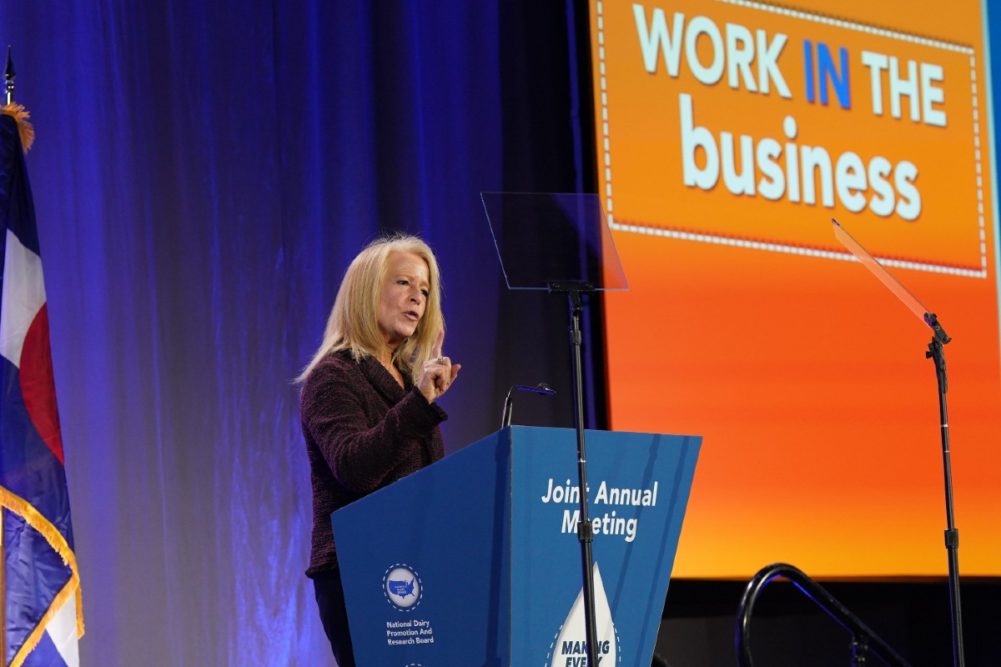AURORA, COLO. – Dairy Management Inc. (DMI) chief executive officer Barbara O’Brien said the checkoff is modernizing its strategy, with a three-year plan focused on adapting to marketplace unknowns and evolving consumer expectations.
O’Brien provided a rundown of the organization’s revamped approach during this year’s annual joint meeting of the National Dairy Promotion and Research Board (NDB), National Milk Producers Federation and United Dairy Industry Association. She said the checkoff is prioritizing action through sustainability, people, innovation, reputation and exports, with the directives based on feedback she received from dairy farmers and industry leaders.
A unified plan for 2023-25 involves: reduced complexity with more focused programming, clearly defined outcomes and accountabilities, a focus on projects that drive the biggest impacts for dairy, and strategies that work with and through the value chain and other partners for added impact.
She said the plan also calls for the checkoff to double down on research, with a renewed investment in health and wellness, product research and development and environmental science. The checkoff announced earlier this year a five-year collaboration with the Mayo Clinic. The organization is working with Mayo’s scientists and physicians to research milkfat and dairy benefits related to chronic disease, as well as exploring new claims regarding immunity, calm, energy and digestive health.
O’Brien also highlighted how digital technology and data are integral parts of the checkoff’s approach, noting it is digitizing health and wellness science, as well as utilizing artificial intelligence and new social listening technology for marketing and media buying strategies.
On-farm research projects focused on sustainability, the CEO shared, are another key component. She said DMI has been involved with more than 140 such projects. A third-party and partner investment includes more than $4 million in the Greener Cattle initiative, a multi-national study of the most promising interventions to reduce enteric emissions.
“This work is all about US dairy as an environmental solution backed by science and proof and economically beneficial for farmers, markets and society,” O’Brien said.

